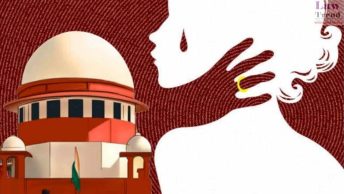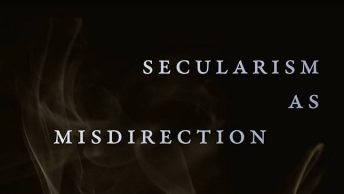I thank Mr.Vivek Reddy for initiating a debate on Pratap Bhanu Mehta’s article. For the present, I will hold my comments on his stand on the issues being referred for consideration by the Constitution Bench on the Mandal II matter. It is important to note that the Constitution Bench, to be set up by the CJI, is not bound to consider all the issues which have been framed for consideration by the PP Bench. Some of the issues, including the one cited by Mr.Reddy in his short comment, are debatable, and doubts have been expressed privately whether they need to be referred and considered at all. Prof. Upendra Baxi, for instance, has expressed his surprise that one of the issues being referred is whether Mandal II law has violated the Universal Declaration of Human Rights. He has termed it as ‘Globalisation of Human Rights”, a view which requires some elaboration. The Constitution Bench is free to conclude that some of these issues don’t deserve to be considered at all, and if they do so, it is easy to find justification for it. I notice that some of the responses in the Comments section to Mr.Vivek Reddy’s view, has already echoed this sentiment. Therefore, I am not dealing with the Mandal II matter here for the moment.
I come back to Mr. Mehta’s article. He is in fact suggesting that caste mobilization to secure the OBC/ST label is seen as the solution, and the political class aggravated it by not taking timely steps to defuse the situation.
Two things: One, how did the Jats get into the OBC category in Rajasthan? No doubt, mobilization helped those responsible to consider their demand. But nobody looks at the reasons the NCBC gave to justify their inclusion in the OBC. The NCBC has done a detailed study running into nearly 100 pages, examining historical and social evidence. One important conclusion which they reached was that the Jats, excluding those in Bharatpur and Dholpur, were tenants historically, and were always involved in the struggle against landlords. As tenants, they had not secured their rights, and land reforms were delayed because of entrenched feudal elements in the State. The Government, too, while including the Jats in the OBC category, has consciously excluded Jats of Bharatpur and Dholpur, as in these two areas, Jats were the rulers. (The former external affairs Minister, Natwar Singh is a Jat from Bharatpur, for example.) In Ajmer, which was under the administration of the Commissioner during the British rule, Jats were included as the BCs. In any case, if there is a genuine complaint, that Jats were unjustly included in the OBCs, then it could be represented to the NCBC for a review of its decision. There is no point in suggesting that inclusion of one community in the OBC list left the other communities in the list with no option but to demand their inclusion in the ST list.
Secondly, Rajasthan seems to have learnt no lessons from the manner other States have learnt to manage similar social tensions. The BJP unjustly promised the Gujjars that their demand for inclusion in the ST list would be considered. Instead of promising this, the BJP could have sub-divided the existing OBC quota, and fixed percentages for different communities. Tamil Nadu defused a similar violent protest by Vanniars, by creating MBCs within the OBCs. Andhra Pradesh and Karnataka have four categories within the OBC quota. Kerala has eight. Ezhavas, the largest OBC community in Kerala, is a very backward class, and has 14 per cent reservation. Beyond this, the Ezhavas have to compete on merit. There is grumbling, but it is all manageable. The Gujjars’ grievance stems from their perception that Jats’ entry into the OBC list has created some sort of imbalance: the answer is to create a semblance of balance, by protecting the Gujjar’s quota, by creating a new most backward class category within the OBCs. Uttar Pradesh under Rajnath Singh had done a similar thing, when he included Jats of U.P. in MBC category. It is, therefore, curious why Rajnath Singh as Party President, has not advised the Rajasthan Chief Minister to try a similar method, when Gujjars first made their displeasure known about Jats’ entry into the OBCs. Tomorrow, I intend to discuss more on the Gujjars’ demand for inclusion in the ST list.







Your article is very informative. Can you elaborate on what is the difference in criteria for inclusion in OBC versus SC or ST? Is it a requirement to have been subjected to untouchability to be included under the schedule? Also, do the state and national backward class commissions operate independently of each other?
Dear Sir,
In my humble opinion, the “solution” of granting reservation benefits to some members of a caste whilst denying them to others seems like aggravating the problem of caste based divisions. This system might be based on a better rationale then blanket grant of reservation to all members of a caste but is not the best way of reaching the benefits of affirmative action to the needy. This system would not only exacerbate inter-caste divisions but also create intra-caste divisions.
See this also
http://www.hinduonnet.com/fline/fl1624/16240950.htm
Is the NCBC study available in
public domain.Under the current classification a caste is declared
as backward in some districts but not so in other districts in the same state.Although it can be argued that this is done after
examining the position of that
caste I have some problems with
this.A person can migrate from
one place to another in the same state for many reasons.Will such
a move per se make him/her eligible/ineligible to get benefits
of reservation. Of course I know that a similar issue is that
classification of one caste as
a SC in one state but not in another/other states.
Dear Mr.Ravi, Thanks for reminding me about Sukumar’s 1999 piece. I think he was inconsistent. After saying there was an implied understanding not to modify the Mandal/States list, he says the NCBC 1997 report on inclusion of Jats and other communities is binding on the Centre.
On the NCBC report on Jats, I gathered the information from Mr.P.S.Krishnan, the former secretary, and presently advisor to HRD Minister. I am trying to see whether I could get a copy of it. If I get, I can share it.